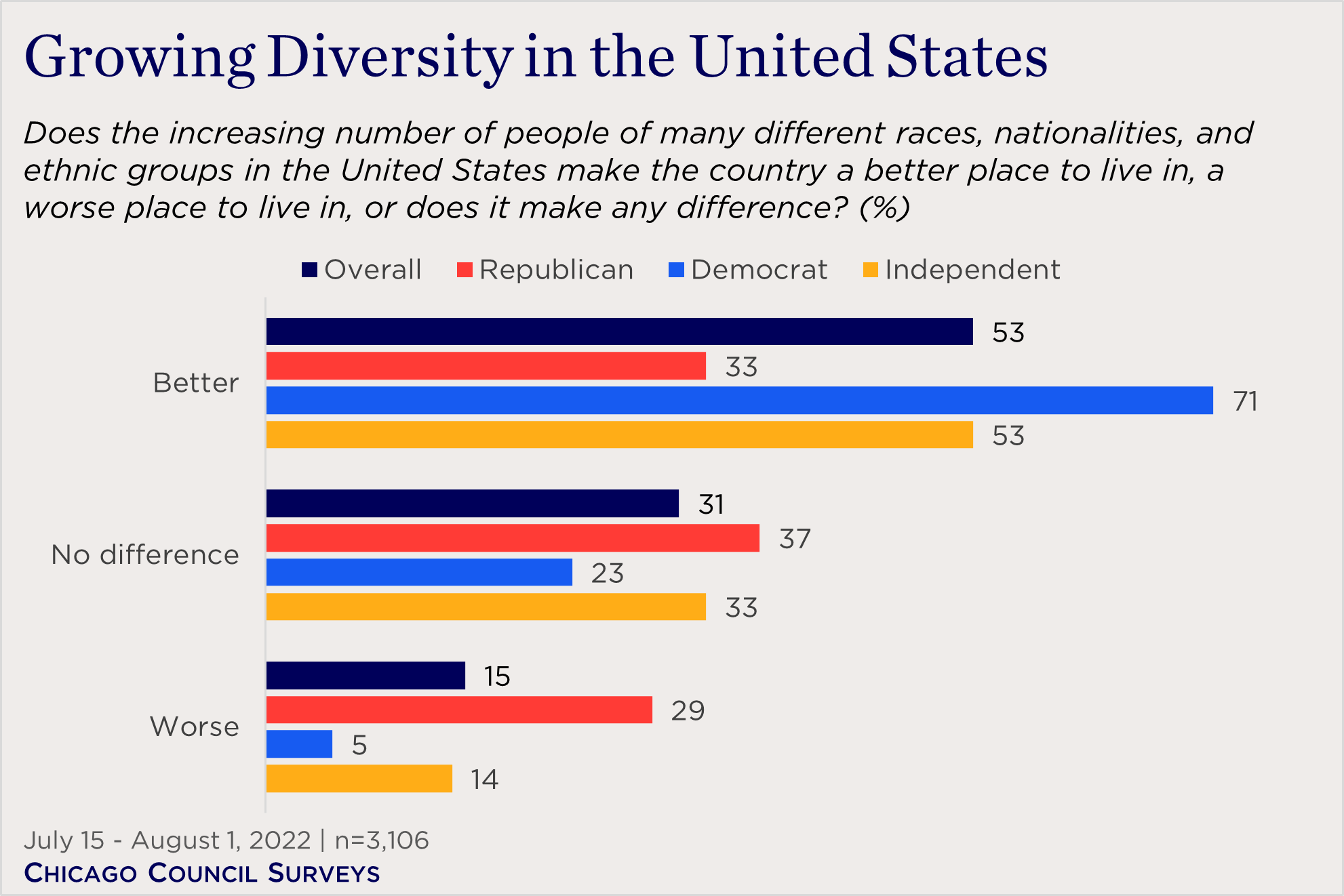What the US Midterms Mean for the World

What Americans Think About Immigration
Now that the midterms are in the rearview, the 2024 presidential campaign is about to begin in earnest. One potentially divisive issue for candidates: immigration.
While the American public is on the same page about support for Ukraine and commitment to NATO, they are starkly divided when it comes to accepting migrants to the United States. Council data find these divisions aren’t solely between Republicans and Democrats, but within both parties as well.
“The Republican Party’s intense focus on immigration as a threat to the country is matched by its more conservative adherents among the public, but not among more moderate Republicans, whose levels of concern remain largely unmoved over the past two decades,” Craig Kafura and Emily Sullivan write. “Similarly, while the Democratic Party’s policy platforms on immigration policy have moved steadily toward the left—matching the more liberal members of the public—not all Democrats have followed suit, with more moderate Democrats notably less enthusiastic about increased levels of legal immigration.”
More analysis.
The Data Dimension
Just as Americans are divided over immigration policy, they are also split on whether diversity has a positive or negative impact on the country. While a majority believe that increasing the number of people from different races, nationalities, and ethnic groups makes the United States a better place to live, Democrats are far more likely to say so than Republicans.

What We're Watching
- South America’s leftward shift: Do victories for Lula in Brazil and fellow leftist leaders across Latin America represent a new “pink tide” sweeping the continent? Expert Yannik John joins Deep Dish podcast host Brian Hanson to discuss.
- North Korea’s nukes: Despite rising tensions on the peninsula, it is unclear if a seventh Pyongyang nuclear test will really register with the American public, Karl Friedhoff argues.
- A North-South split in Eastern Europe: Recent polls reveal a geographic divide when it comes to the region’s perception of Russia's war in Ukraine, Gaby Ivanova and Emily Sullivan write.
- The cost-of-living crisis: As winter approaches, the Council has launched a global listening project to amplify the stories of young people dealing with inflation and higher energy prices—and we want to hear from you.
Ask an Expert

What could the US midterm results mean for foreign policy?
“At least one chamber of Congress is likely to end up in Republican control, which will impede major legislation, but I don’t anticipate Biden will be shy about using executive action where he’s able. Based on some of the rhetoric we’ve heard from many Republicans, I also expect more contentious language on China, which could make it harder for the administration to walk the fine line of competition and cooperation with a major global power.”
—Senior Fellow Elizabeth Shackelford

